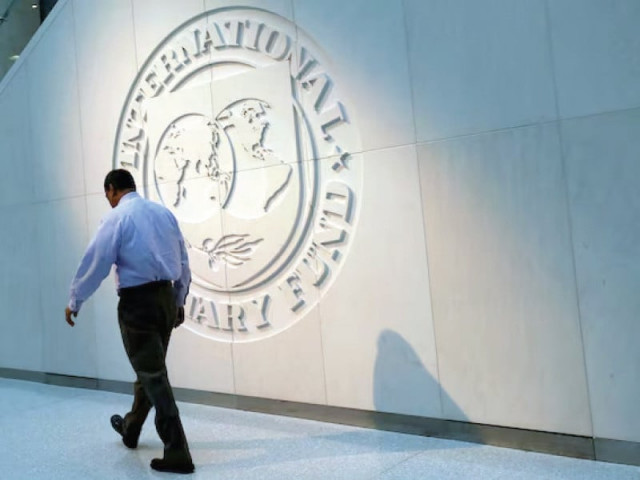Govt asked to prioritise growth despite IMF loan
Businessmen say IMF programme shouldn’t be used as excuse to slow down growth

Businessmen have cautioned the government that the signing of a staff-level agreement with the International Monetary Fund (IMF) should not be used as an excuse to retard economic growth of the country.
“We understand that the country cannot survive without another IMF programme. At the same time, the government should prioritise economic growth, provide employment and reduce inflation,” remarked Pakistan Business Forum (PBF) Central Vice President Ahmad Jawad while talking to members of the business community.
“If there is an IMF programme, who has stopped you from doubling agricultural output, and increasing traditional and non-traditional exports?” he asked.
Jawad stressed that the IMF programme and economic growth could exist together, adding that though there would be definitely some limitations under the programme, those could not be made an excuse for not advancing in different crucial areas.
He called on the government to play its role as a “catalyst” and provide an “enabling environment” to the private sector. “The government has to work with us to resolve issues, stop delays, address inefficiencies and create a favourable environment through which private sector can work hard to increase economic growth,” he said.
“A nation’s voice is strong, when its economy is strong. If the economy is weak, no one listens to the voice of the weak.”
Similarly, cheap sources of electricity should be explored and mark-up should be brought down. He demanded that the government get energy audit conducted of the power sector and independent power producers (IPPs) from a reliable international firm.
Some IPPs are virtually not functioning but the government is paying a huge amount to them. These IPPs have invested only Rs50 billion while they are receiving Rs400 billion from the government, which is recovering this massive amount from consumers.
The government is compelled to pay capacity charges to the IPPs due to wrong contracts. “Electricity price is the biggest problem right now.”
The PBF official pointed out that the government was drawing Rs2,000 billion from public pockets annually in the form of capacity charges. And owing to high tariffs, 25% of the industry has closed down.



















COMMENTS
Comments are moderated and generally will be posted if they are on-topic and not abusive.
For more information, please see our Comments FAQ